Influential cinematic entries in the subgenre include 1968's Witchfinder General, 1971's The Blood On Satan’s Claw, and, of course, 1973's The Wicker Man.
In 2010, folk horror received a signal boost from actor and filmmaker Mark Gatiss, who examined the subgenre in his BBC documentary, A History of Horror. And in recent years, folk horror has been all the rage on the screen and among horror fans, thanks to eerie woodsy flicks like The Witch, Midsommar, The Ritual, and Gretel & Hansel.
But folk horror's roots run deep—in literature as well as cinema.
What is folk horror?
With its emphasis on folklore and outsider culture, the subgenre can be tricky to pin down, with many horror fans taking an “I know it when I see it” approach. Writing for Film School Rejects, Kieran Fisher defines folk horror as “concerned with characters and communities who are located out of the way of urban environments. As such, they have developed their own skewered belief systems, which results in violent and twisted acts being carried out on the unfortunate victims who find themselves caught up in the madness.”
In other words, folk horror more closely works with psychogeography, and occurs as a result of a clash of cultures of sorts. It uses elements of folklore to invoke fear and uneasiness. Folk horror literature and films are typically presented in a rural setting, as that enhances the idea of the dark side of nature, and also usually includes themes of isolation, sacrifice, and superstition.
Folk religion, and more specifically, paganism, are often explored in folk horror, though they’re not the only possible avenues. But the reason it’s so difficult to come up with a universal definition of the subgenre is because there are so many different types of folklore.
Though an almost undefinable genre, folk horror is an important genre. It draws on stories of old and gives them new meaning; not only is it an exploration of ancestral habits, but it’s also another way to examine history and analyze our world.
It’s more than a simple re-telling of an old story–folk horror doesn’t actually become folk horror until you’ve taken the lore and reimagined it with horror elements and contemporary relevance.
From Thomas Tryon's influential Harvest Home to modern-day tales of pastoral terror, these folk horror books engage with beliefs that exist on the fringes—and conjure up nightmares as bright as the midnight sun.
We present 13 of our favorite folk horror books for your late-night reading pleasure.
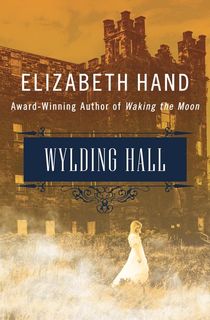
Wylding Hall
Years after their heyday, the members of a British acid-folk band reunite to produce a documentary about what happened the summer they created their wildly popular debut album. But nothing is as it seems.
Their summer in Wylding Hall, the ancient country house they stayed in to record the unique sound that catapulted them into fame, was a bizarre one. The house had some dark and terrifying secrets, and though the group managed to successfully record their reputation-maker, the group’s lead singer, Julian Blake, disappeared from the mansion without a trace.
And when they all come back together to share their account of the summer, no one knows whose story is actually true, nor what actually happened to Julian…
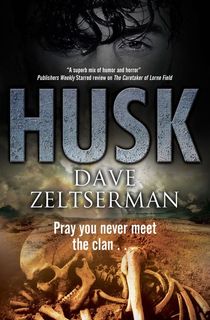
Husk
If cannibalism is your craving, this one’s for you. Charlie, a member of the Husk clan, is hunting in the wilderness of New Hampshire when he falls in love with his prey: a girl named Jill. But in order to be with Jill, he must leave the clan and their brutal cannibalistic rituals behind–and this proves to be far more difficult, not to mention more dangerous, than Charlie ever imagined.
The key to eliminating his terrible cravings may just find him in New York City–but only if it doesn’t kill him and everything he’s grown to love first.
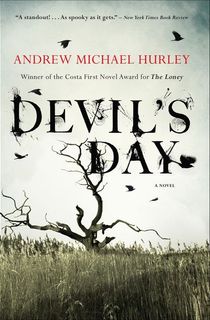
Devil's Day
When John Pentecost returns to the Lancashire farm he grew up on to help gather the sheep from the moors in the autumn, he usually knows what to expect. But this year is different: his grandfather, “the Gaffer,” has passed and John’s new wife, Katherine, is joining him for the first time.
Annually, the Gaffer would redraw the boundary lines of the village based on folk tales, family stories, and familiar ancestral rituals, so that the sheep will be safe from the Devil. But this year, John is the appointed boundary-line-drawer, as someone had to take the Gaffer’s place.
The Devil’s Day festivities commence, and John must navigate the tensions and feuds of the villagers as well as his own dark secrets to draw the boundary lines and keep the Devil from getting in…
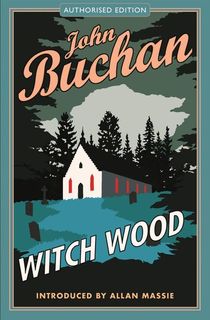
Witch Wood
Set amidst the religious propaganda and civil wars of seventeenth century Scotland, Witch Wood is an atmospheric folk horror story about presbyterian minister David Sempill and his struggles with his faith.
Faced with the onset of the plague, disputes with extremists of his faith, black magic, and pre-Christian imitations of nature worship, David’s loyalties divide, and his disappearance leaves everyone questioning.
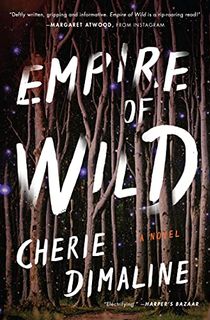
Empire of Wild: A Novel
In a Little Red Riding Hood style that centers around the Métis community, heartbroken Joan has been looking for her missing husband, Victor, for almost a year. He’s been missing since the night they had their first serious argument–and though her family tried to help her find him in the beginning, it’s gotten to the point where they’ve started telling Joan to move on. But now she might not have to.
One morning, in a hungover stupor, she is drawn to a revival tent where the local Métis gathered to listen to charismatic preacher Eugene Wolff. By the time she makes it to the tent, the service is over; but the revival is just beginning. As she turns to leave, she hears a familiar voice: Victor’s voice.
She turns around, and there he is. Same face and eyes, familiar hands, and that unmistakable voice. Sure, he got his hair cut, and he’s wearing a suit, but it’s him. The only problem is that he doesn’t recognize her at all. He claims he’s Reverend Wolff and his only mission is to bring people to Jesus. Though Joan quickly discovers that’s not all he’s doing. With the help of some unlikely companions, she’ll jump through every hoop to remind the “Reverend” of who he really is–everyone’s lives depend on it.
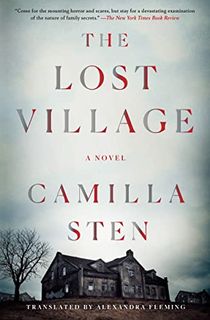
The Lost Village: A Novel
Documentary filmmaker Alice Lindstedt has been intrigued by the residents of “The Lost Village,” an old mining town, since she was a little girl. In 1959, her grandmother’s entire family, along with many others, disappeared in a mysterious tragedy, leaving only two people behind: an abandoned newborn, and a woman stoned to death in the town center. Her curiosity plaguing her, she recruited a small crew of friends to help her document the actual goings-on in the remote village.
But it’s not long before mysterious occurrences begin to happen; equipment is destroyed, and people start going missing…which feels eerily familiar. It quickly becomes clear that though the village is remote, they’re not alone. And they need to find the culprit before it finds them.
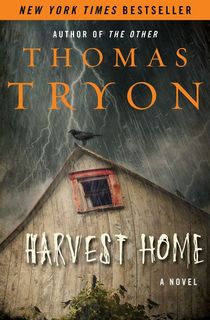
Harvest Home
“A brilliantly imagined horror story” (The Boston Globe) by a New York Times bestselling author and former actor, Harvest Home is considered by many to be one of the ur-texts of folk horror, and an inspiration for Stephen King’s "Children of the Corn".
Fed up with the grind of city living, the Constantine family decamp to an isolated village in New England. The family hopes the fresh air will clear their heads and revive their spirits. Sure, their new neighbors are a bit unusual—especially when it comes to the annual harvest festival.
But their good salt-of-the-earth folk at heart, right? Soon, the Constantines will discover that what seems innocent on the surface is steeped in ancient evil.
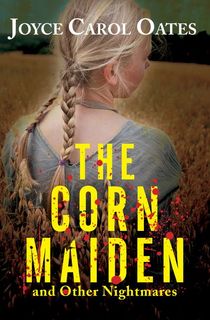
The Corn Maiden
Over the years, Joyce Carol Oates has established herself as one of our most celebrated – and prolific – writers, and there’s no better place to encounter her “reputation as a master of psychological dread” (Publishers Weekly) than in this collection of seven “probing, unsettling, intelligent” stories (The Guardian), including the horrific title novella, which tells of the disappearance of an eleven-year-old girl and a ritual called the Corn Maiden.
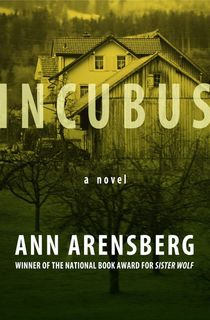
Incubus
Ann Arensberg won the National Book Award for her 1981 novel Sister Wolf. In Incubus, she brings that award-winning talent to a tale of supernatural evil descending on a small Maine town in the summer of 1974. (Thanks to Stephen King, small Maine towns should really be no strangers to supernatural evil, by this point.)
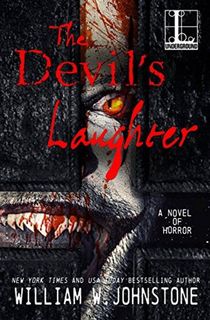
The Devil's Laughter
The name of William Johnstone should be familiar to readers of Grady Hendrix’s bestselling history of paperback horror, Paperbacks from Hell. “Double-barreled blasts of lunacy right in the face,” Hendrix writes, “Johnstone’s books are delightful howls of unhinged insanity.” Proving that folk horror doesn’t always have to be stuffy or over-serious, Devil’s Laughter finds out-of-town rich folks bringing the literal devil to the Louisiana backwoods of LaGrange, and only the God-fearing folks of the town can stop them.

The Auctioneer
“Imagine Stephen King’s Needful Things written by Cormac McCarthy, and you’ve got the right idea,” Grady Hendrix writes of this “masterful, flinty” novel from 1976. Newsday calls it a “well-made piece of dynamite” with “the most gripping and violent ending we’ve encountered for some time.” The Baltimore Sun puts it more simply still: “Buy this book.”
The only novel from author Joan Samson, who tragically passed away from brain cancer not long after its publication, The Auctioneer spent some time on the bestseller list when it was first released, and has recently been rediscovered, with a new introduction by Hendrix.

HEX
Nominated for the Hugo and World Fantasy Awards, Dutch writer Thomas Olde Heuvelt has been translated into nine languages and published in more than a dozen countries. His bestselling novel HEX brings folk horror crashing into the internet age with the tale of Black Spring, a picturesque town in the Hudson Valley that is home to the Black Rock Witch.
Her eyes sewn shut, this seventeenth-century witch nevertheless haunts the town to this day, entering homes at will, standing by bedsides for nights at a time. The town uses technology to keep the curse isolated to their little burg, but when the haunting goes viral, everything begins to change…

The Hidden People
Was Lizzie Higgs brutally murdered by her own husband in the quaint little town of Halfoak, her body burned in her hearth? Or was she already gone before that and replaced by a changeling, as her husband claims? Her cousin has come to Halfoak to find the answer, but he may find the truth more elusive than he expects in this 19th-century village where the “hidden people” are seemingly never far away…

The Ritual
Recently adapted into the hit Netflix film of the same name, Adam Nevill’s modern masterpiece of folk horror follows four friends on a hiking trip in the Scandinavian wilderness. Trying to escape their own problems and patch up old hurts, the quartet instead encounters a nightmare scenario from out of ancient mythology—a monster, worshipped as a god, and stalking them through the primeval woods.

Dark Harvest
“This is contemporary American writing at its finest,” Publishers Weekly said of Norman Partridge’s Dark Harvest, which won the Bram Stoker Award when it was released in 2006. This tale of a rite of passage in a small Midwestern town in the 1960s is both monster story and parable, and has earned comparisons to Shirley Jackson’s “The Lottery.” Plus, it’s the perfect book to read for Halloween—or any time you want to call up the spirit of Halloween all year long.

White Pines
The synopsis describes White Pines as a “cosmic-folk-Celtic-cult-fantasy-horror novel” from the Bram Stoker Award-nominated Gemma Amor. What more do we really need to tell you? Stoker winner Kealan Patrick Burke may have said it best when he described Amor’s work: “Gemma writes like her life depends on it.” And you’ll turn the pages the same way as you take a visit to White Pines…

Creeping Waves
Not all folk horror is found in the woods, in pagan rites or backwoods communities. Sometimes, it’s as close as your radio dial. That’s what the people of Leeds, Massachusetts discover when they spin the dial all the way to the left, into those murky, low numbers that haunt this bizarre, unearthly short story collection-cum-mosaic novel from one of the most exciting voices in contemporary horror fiction.
Related: What Are the Best Weird Fiction Books? Here Are 13 Tales of Cosmic Horror to Get You Started
This post is sponsored by Open Road Media. Thank you for supporting our partners, who make it possible for The Lineup to continue publishing the creepy stories you love.









